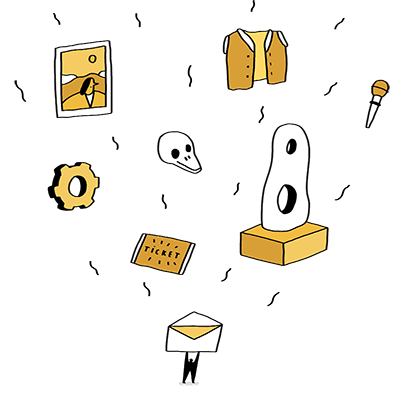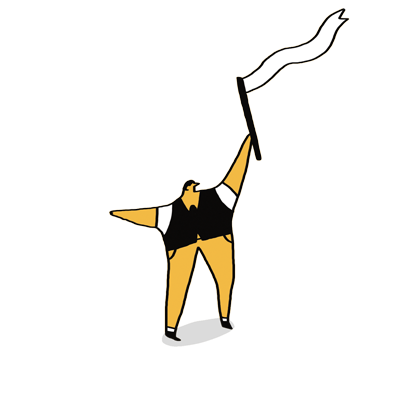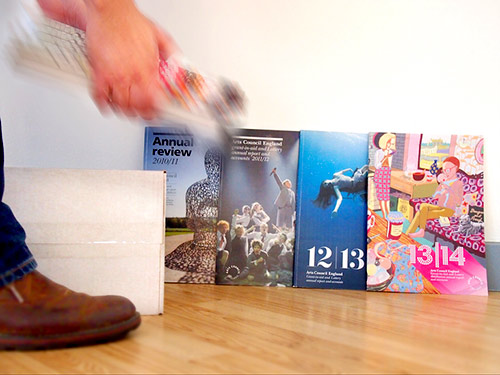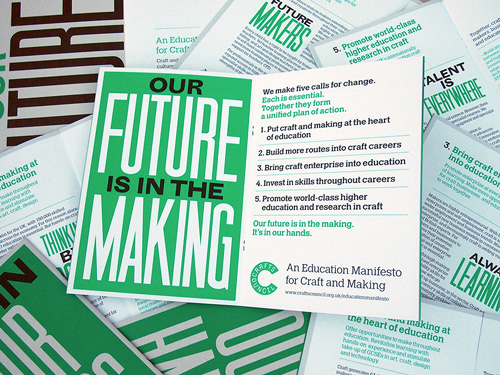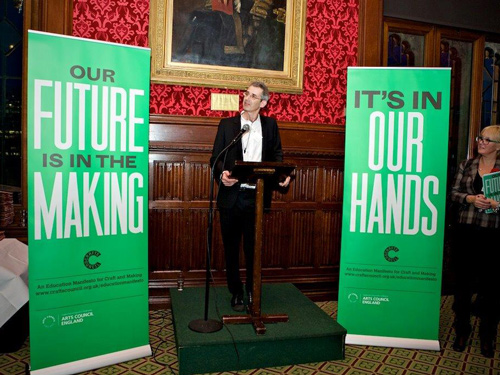For the first time in our lifetimes we have a fixed date for the general election – 7th May. Arts and heritage organisations are upping their games and lobbying for culture; we’ve been lucky enough to help a few.
Advocating for culture
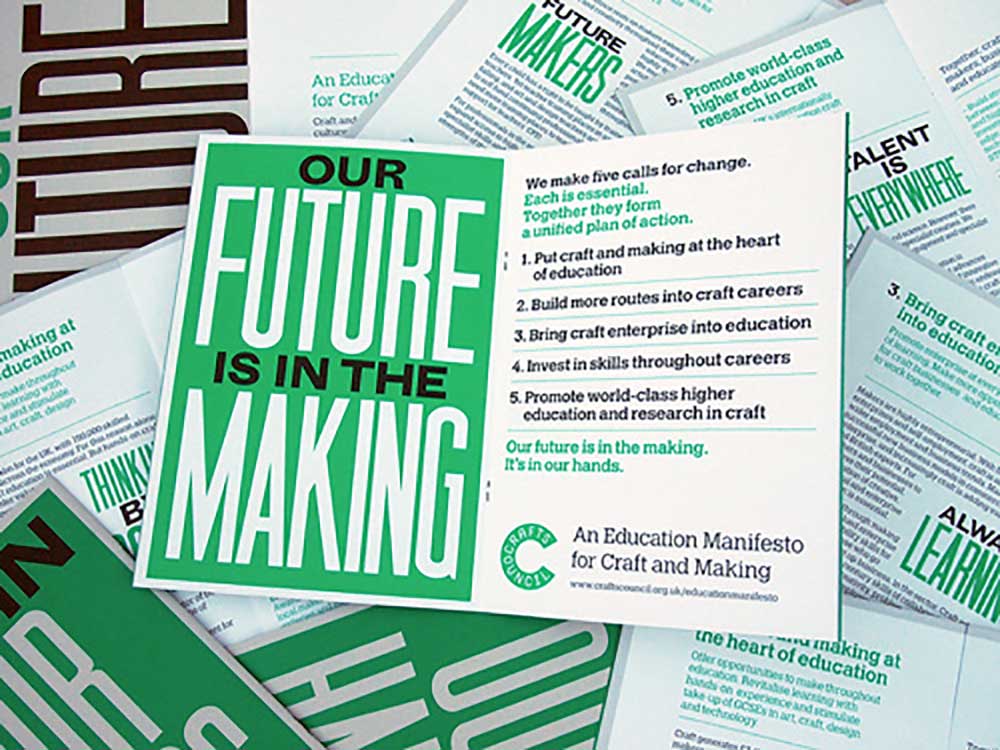
After years of dramatic cuts to public funding and a political drive to demote arts and humanities in the education curriculum, this general election is hugely important to the future of the cultural sector.
With a fixed date to aim for, active lobbying is no longer the preserve of the well-resourced, professional lobbyist, and many arts organisations are putting forward the case.
Perhaps for the first time (at least on this scale) arts organisations are attempting to properly quantify the value of their contribution to society.
Arts Council England have been leading in this area since Peter Bazelgette took over the Chair in 2013.
In the two Annual Reports that we’ve designed since he took over, the emphasis has clearly been on bold infographics telling the story of investment.
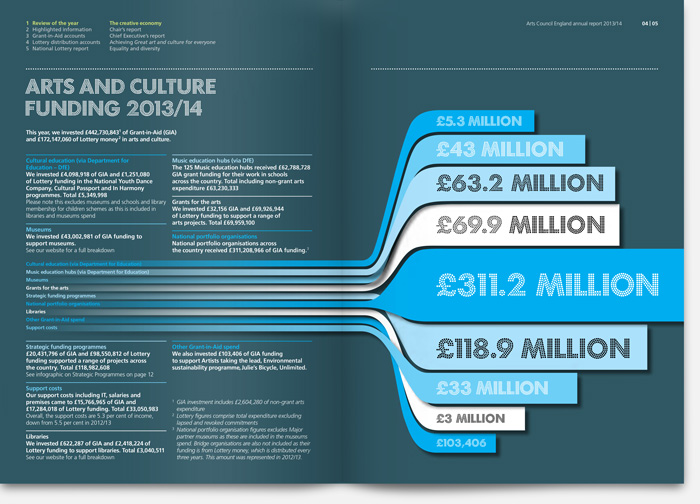 They have been gradually codifying what they mean by ‘value’ and have been building an evidential case for the impact on health, society, economy and education. We worked with them on an evidence review last year and that has led to a much wider advocacy platform on their website.
They have been gradually codifying what they mean by ‘value’ and have been building an evidential case for the impact on health, society, economy and education. We worked with them on an evidence review last year and that has led to a much wider advocacy platform on their website.
Whilst Arts Council England are taking a holistic view, Crafts Council has taken a much more campaigning stance. They released their provocative Education Manifesto at the Houses of Parliament in December. We worked with artist and print-maker Antony Burrill to produce a defiant, five-point plan of action.
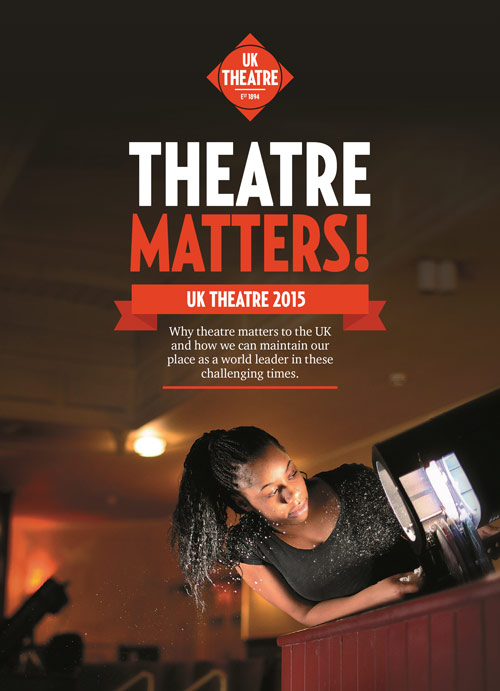 Membership organisations are fighting for their sectors too. For UK Theatre we produced a celebratory document, with bold numbers and quotes, telling the success story of the nation’s theatres, and explaining why it’s vital to safeguard its future. It’s available to download from their site.
Membership organisations are fighting for their sectors too. For UK Theatre we produced a celebratory document, with bold numbers and quotes, telling the success story of the nation’s theatres, and explaining why it’s vital to safeguard its future. It’s available to download from their site.
UK Theatre (alongside The Stage and Equity) also spearheaded the My Theatre Matters! campaign, which empowers people to lobby for greater recognition for their local theatre (by praising those that are well-funded and lobbying for those that aren’t). We designed the branding and website.
In a similar vein, the National Campaign for the Arts publishes an Arts Index each year, using research and key statistics to assess the health of the sector. From that data they launched the 50p for Culture campaign last year which includes a postcode search so anyone can see how much local funding is invested locally. I recently joined the NCA board so I’m expecting us to be even more heavily involved in the future.
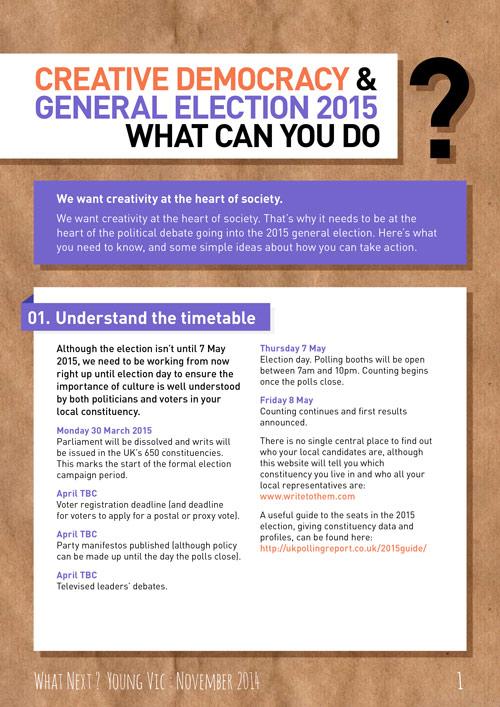 And away from formal organisations and company set-ups is What Next?, described as a national movement with individual opinions that coalesce around ideas. We worked with them to produce a simple document with tips for how to plan for the election and lobby for greater recognition from their local politicians.
And away from formal organisations and company set-ups is What Next?, described as a national movement with individual opinions that coalesce around ideas. We worked with them to produce a simple document with tips for how to plan for the election and lobby for greater recognition from their local politicians.
So, does any of this matter? Do politicians listen? Is it really an election issue? When UK Theatre recently asked politicians about the issues, many pointed out that almost no one on the doorstep asks about arts funding. By trying to define the arts in terms of value, are arts organisations reframing a positive debate in a language that politicians understand, and pushing it up the political agenda? Or might that utilitarian argument backfire when politicians ask, ‘what do you want to spend taxes on: hospitals or museums?’
One campaigning organisation that has taken a different approach is Arts Emergency. They saw that government policy was narrowing choices and excluding people from an education in arts and humanities, so they stepped in to help. They put the case for changes in policy but they also provide practical help through mentors and financial support to the most underprivileged. You can donate to their cause via their website.
And artist, Bob and Roberta Smith has taken the ‘if you can’t beat them, join them’ attitude. He’s standing as an independent against Michael Gove, on a platform of arts not austerity. We wish him every success and will be following his campaign with interest.
